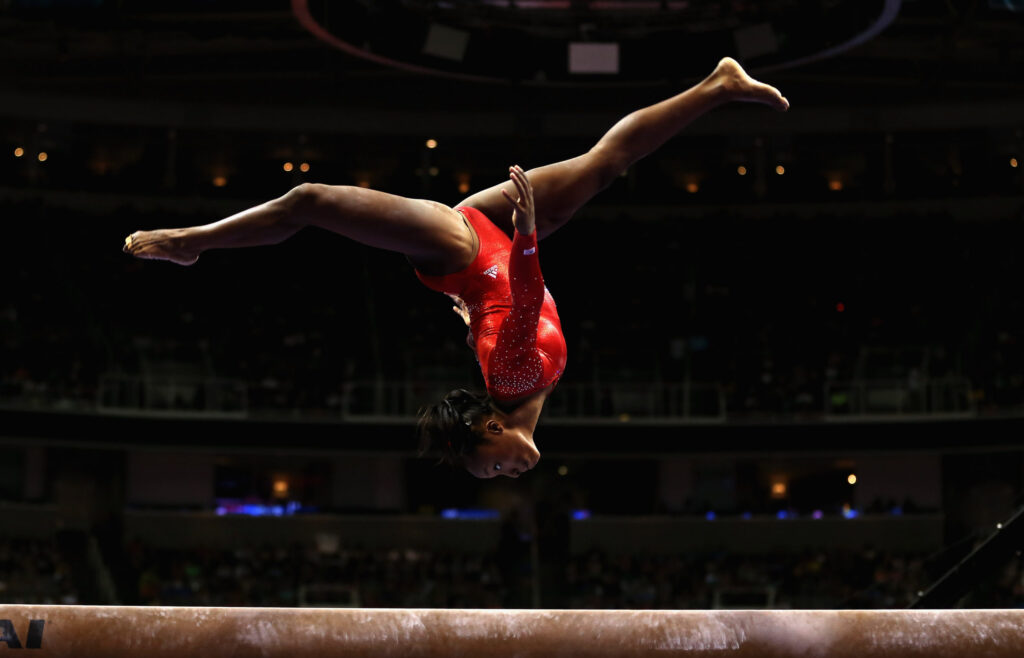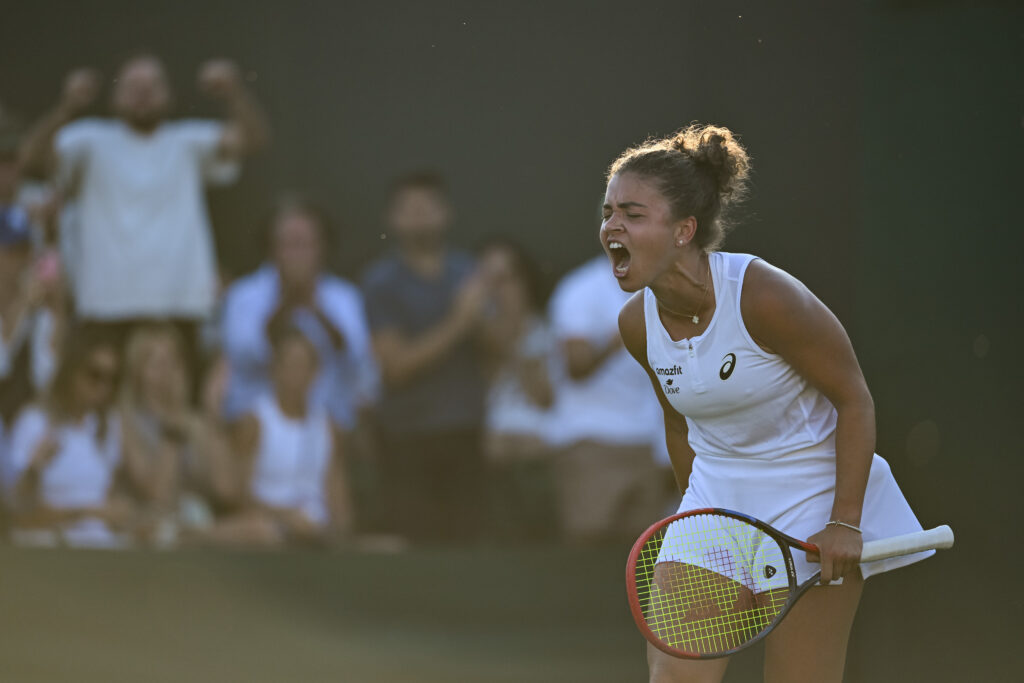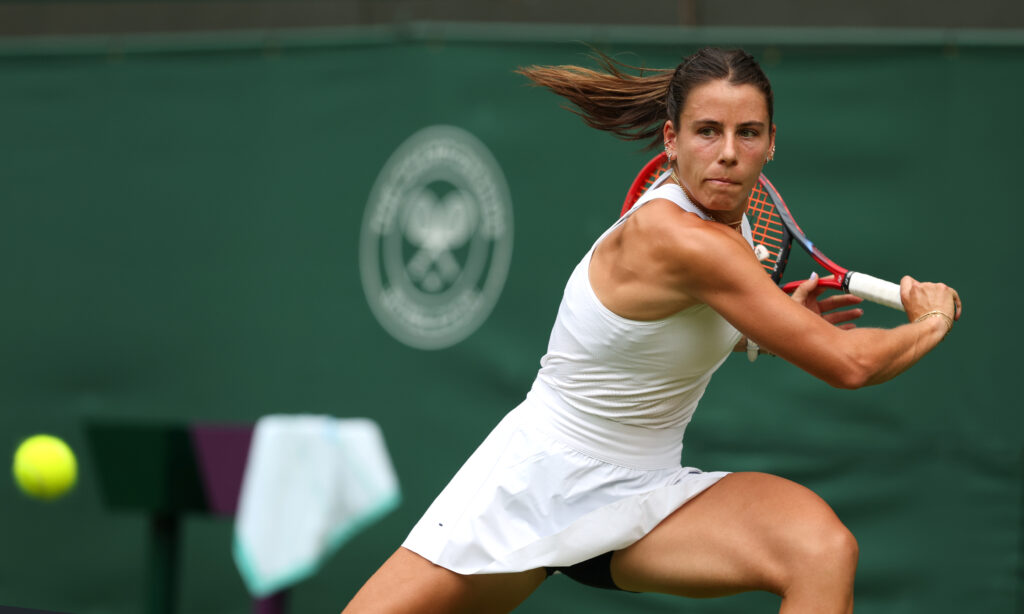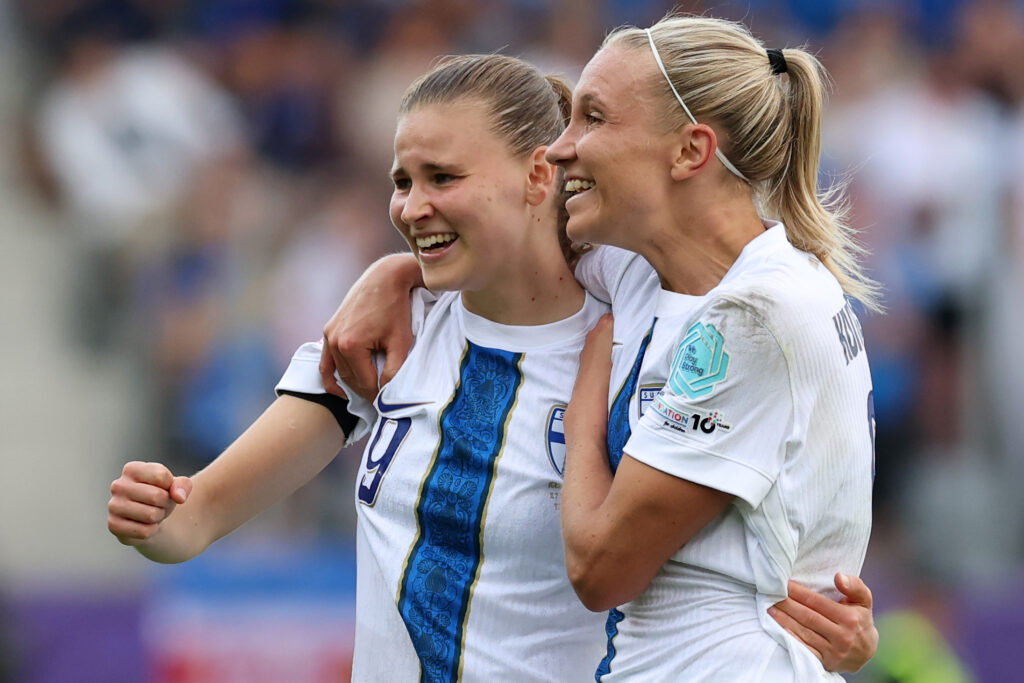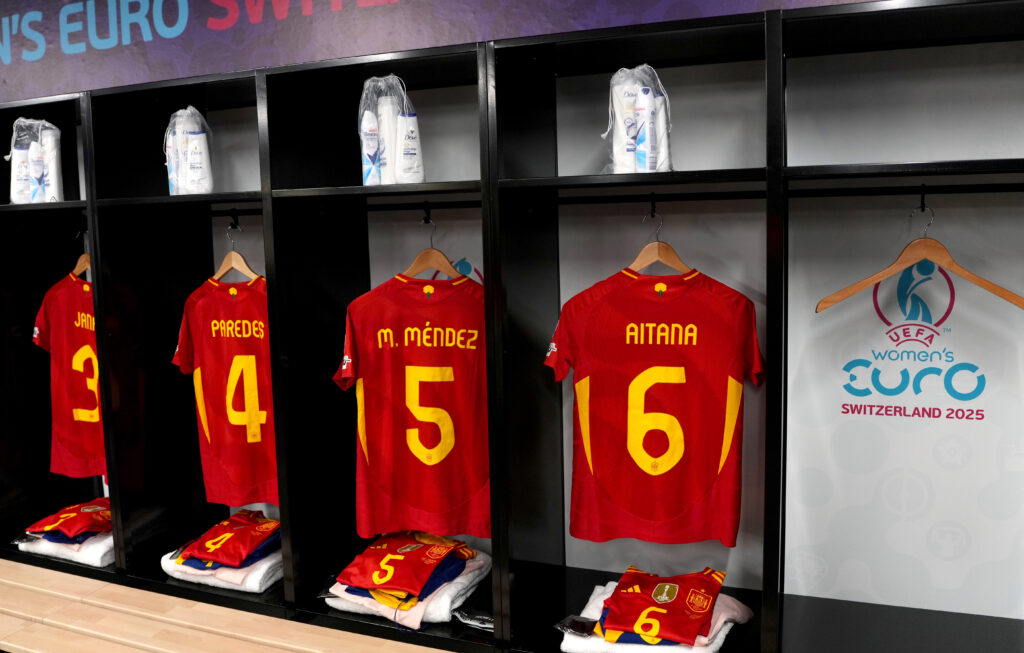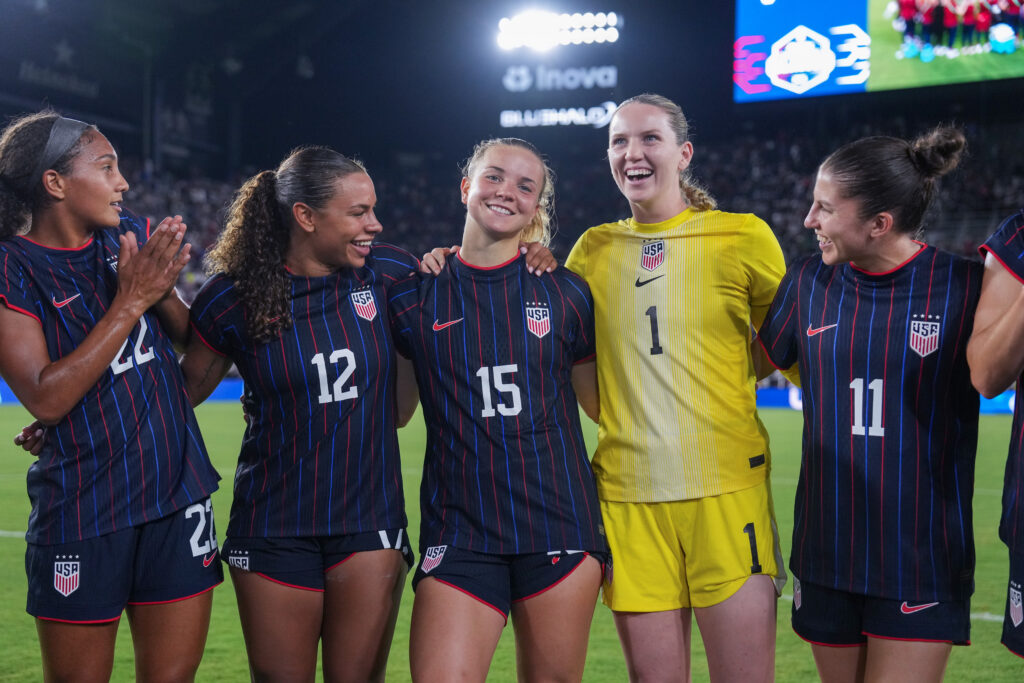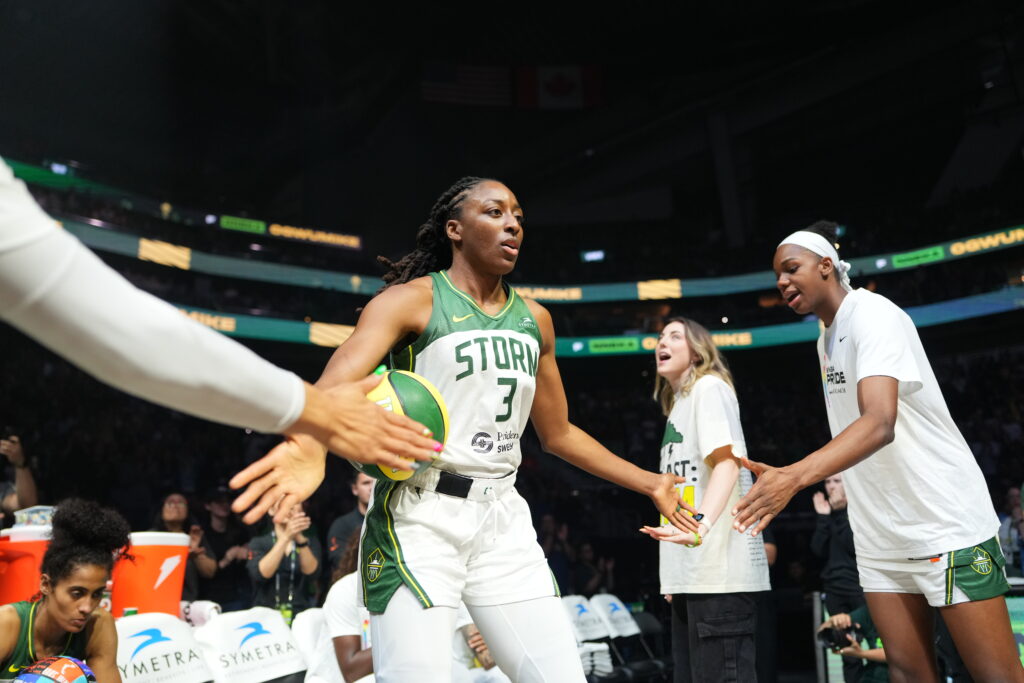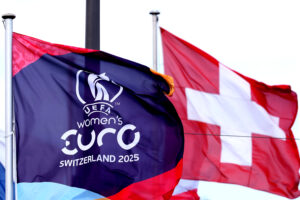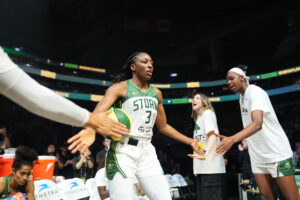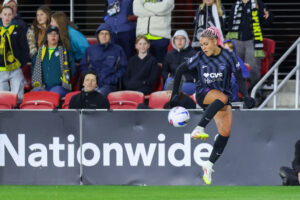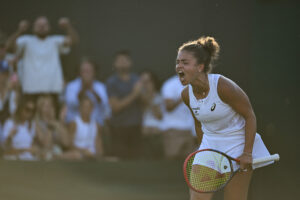Elizabeth Price is a retired gymnast who competed on the US national team as an alternate for the 2012 Olympics and at Stanford University. She is currently pursuing a master’s degree in design engineering at Harvard. At Stanford, Price won national championships in the vault and the uneven bars. Below, she spoke to Just Women’s Sports about her career as an elite gymnast, her experience with the national team, and the necessary changes the sport is undergoing.
A lot of gymnasts start at a very young age. Was that true for you and how did you get introduced to the sport?
Yes. I started when I was three. My mom put me in the sport because she said I had too much energy and she just needed me to do something. It ended up being gymnastics. My parents have no gymnastics background whatsoever. But both my parents would drive past this gym on the way to work when I was little and my mom saw little kids running in and out so she decided to stop by. It was gymnastics, so she was like, “Perfect!” She signed me up for a class, and the rest is history. I was six when I started competing at meets around Pennsylvania where I grew up when, and then each year I’d move up a level and start competing in more competitions, and traveling to more places.
I read that you were homeschooled most of your childhood to focus on training for elite gymnastics. At such a young age, what was it like to dedicate yourself to a sport like that?
I was twelve, going into seventh grade when I started homeschooling because that was also the year when I became an elite gymnast. My coaches saw a lot of potential in me before then and really actually wanted me to start homeschooling earlier so I could spend more time in the gym. But it was my parents who wanted me to wait a little bit longer. Once I qualified as an elite, I stopped going to school and became homeschooled. From then on, I spent 40 hours a week in the gym until I graduated high school.
Does becoming an elite gymnast mean that you’re basically on track to competing with the Olympic team at some point?
Yeah, it’s definitely the track for the National Team and the Olympics. You can’t go to the Olympics unless you’re on the national team, so that’s the ultimate goal. But the first goal if you want to make it to the Olympics is becoming an elite gymnast.
Was there ever a point in your childhood to early teenage years that you questioned your love of the sport?
There were things that I didn’t like that I had to do to be as good as I was. For example, I didn’t want to be homeschooled. I loved going to school as a kid so that was a huge sacrifice for me. And then even when I was younger practices were longer. Even then it was like, oh I can’t go trick-or-treating. That’s not a big deal, but to a nine year old that was a big deal. So little things like that that I really missed out on. Birthday parties, vacations, that kind of stuff. Around the time I was maybe eleven or twelve, that’s when the competitions and the training required more focus, dedication, and effort on my part. That is when gymnastics became something I was really dedicating myself to, as opposed to something that I did and just happened to be really good at.
What was your go-to event?
So I competed in all four events throughout my entire gymnastics career. Most girls before college compete in all four. However, my strongest events were floor and uneven bars. And I would say bars are my favorite, for sure.
You were a member of the US Senior National Team in 2012 and an alternate for the 2012 Olympics. What was that experience like?
I don’t think I really saw myself as going to the Olympics, ever. Not that I didn’t think that I was good enough, but as a kid, you see the people at the Olympics, and those are the best in the world. And I never personally never thought of myself as one of the best in the world. Yes, I thought I was competing with the best, I was holding my own. But I never really saw myself as being able to go out there and be one of the best in the world. At least not until I was at Olympic trials.
I don’t think I realized that I had the potential to really make an Olympic team until that meet. I didn’t have confidence in myself before then. Even if I’d go out there and win every event, I still wouldn’t think that I was one of the best. But the year of the trials was one of my best years ever. I was super consistent and doing really well. I ended up finishing fourth at the Olympic trials. I mean, it really doesn’t get much better than that. Obviously that was a huge accomplishment to finish so high and qualify for an alternate spot on the team. But it was also huge for me personally because that was the moment when I realized oh wow, I’m definitely able to go out there and be one of the best in the world, if not the best in the world one day.
Five gymnasts compete in the Olympics. You placed fourth in the Trials. So how come they didn’t choose a top-5 performer from the trials for the team?
So the only person who’s guaranteed a spot on the Olympic team is the person who finishes first at trials. All of the other spots are selected individually. And in 2012 they took the first place person, who I’m pretty sure was Gabby Douglas, and then they took the second and third place person, the fifth place person, and the seventh place person. In the Olympics, not everyone gets to compete in every event. There’s strategy in picking the team. You want the five people who would get the top three scores on each event. So it’s more than just taking the five best all around gymnastics. So even though I competed in all of the events, if I was to end up selected, it would have been for either floor, bars or the vault.
Were you surprised to not have been selected?
After the meet was over and I was sitting in fourth place, I definitely thought I was going to be selected as one of the five people to compete. But at the same time, I wasn’t really sure, because I knew I was right on the edge. The people who placed above me were stronger all around gymnasts, and the people who placed below me were stronger on individual events. Of course, I would’ve loved to have been part of the five who got to compete, but also being selected as an alternate is a huge accomplishment. I mean, how many people get to say that they were part of an Olympic team at all? So I was very proud of myself and definitely happy with what I got in the end.
You retired from elite gymnastics in 2014 before heading to Stanford. Is it common for athletes to choose between competing in college and with the national team?
Very few people do both. If anything, if you still want to do elite gymnastics, people might take off a semester or something to train for the national team. But like I said earlier, elite gymnastics requires 40 hours a week of training. And I could not do that and compete for Stanford at the same time, on top of the academics.
How did you feel when you retired from elite gymnastics? Was it a sense of relief or was it more excitement about this new chapter?
I was very excited about what was coming next, because at the end of my elite career I had accomplished everything that I wanted to. I didn’t necessarily compete at World Championships or compete at the Olympics, but those were never my specific goals. I wanted to make the national team and just be the best gymnast that I could be, and I felt that I had proven to myself that I was stronger than I thought. I had gotten everything I would receive from elite gymnastics, and so I was very excited to head to Stanford and see what it had to offer.
Right away, your freshman year, you win the NCAA vault title. How do you feel like that set expectations for the rest of your Stanford career?
I had high expectations for myself going in. But college gymnastics is much different than everything else. The judging is different, the routine structure is different, and I wasn’t sure how I would compare to the other athletes and their routines. So going out there and being able to win an NCAA title my freshman year was super reassuring and obviously a great accomplishment. Especially as a freshman who was new to the whole college scene, so it was pretty awesome.
What makes the competition different in college?
Aspects of it were easier. For example, in college you can’t train more than 20 hours. So obviously there goes half of my training time. Additionally, in the elite you’re basically trying to do the hardest possible skills you can and make them look pretty decent. In college you’re not necessarily trying to do the hardest skills. You’re trying to do medium difficulty skills but make them look absolutely perfect. And that was basically the difference. You’re really focusing on trying to get the perfect 10, which is different in elite scoring because in elite scoring you can’t really get a 10. As you just add harder skills, the scores go higher and higher and higher. There’s really no limit to the scoring, so that’s the biggest difference.
What did it mean for you to end your gymnastics career as An NCAA champion?
It was more than I could’ve asked for. Knowing it was going to be my last competition, my main goal was just to go out there and hit four solid routines and do as good as I possibly could. But I did even better than that because I scored a 10 at nationals, which never even crossed my mind as being a possibility. I’m like, you’re at nationals, there’s even more judges, they’re doing everything they can to find everything wrong with your routine. So the fact that I scored a perfect 10 at nationals at my last competition was just the cherry on top. All the hard work, all the hours I put in my whole life, and especially in college and all of the injuries I endured — everything was worth it.
How did you deal with the transition out of gymnastics when you graduated?
Starting when I was a kid, I wanted to be an engineer. Before I knew I was going to do college gymnastics or be an elite gymnast, I knew I wanted to be an engineer. So throughout my college experience, I always saw the end of gymnastics coming. I knew exactly when it was coming, and I knew exactly what I wanted to do afterwards, so the transition was pretty natural. Although gymnastics was the biggest part of my life, it wasn’t my life. I’ve always wanted to do other things, and I just happened to spend a lot of my time doing gymnastics along the way.
I wanted to transition to more current events. Athletes have been at the forefront of the social justice conversation this year. What are your thoughts on the importance of athletes using their platform to speak up on these issues?
I personally think it’s absolutely amazing to see athletes stepping up and using their platforms to bring attention to these really important matters. Especially because so often the general public use athletes as these perfect beings that are so far removed from social issues. But I think it’s really important to see these athletes step up and be saying something and using their platform, because it lets people know that everyone is attached to this. No one is unaffected by what’s going on.
Obviously a big storyline in the gymnastics world the past few years has been all the coaching abuse scandals. What’s been your perspective on these changing dynamics within the sport?
It’s difficult to analyze a lot of what goes on right now, because gymnastics is a sport that involves athletes that are very young, much younger than other sports. Most gymnasts start when they’re like five years old, and all their careers are done before they’re 22. It is really important to analyze exactly what the coaching structure is because all of the athletes, as great as we are, we’re still only children and have most of our lives to live after our sport is over. It’s not something we get to do forever, so I think it’s great to see the change that’s coming to the sport of gymnastics with regards to how people treat coaching, how coaches are treating athletes, and how everyone’s making sure that accountability is being placed on the people whose jobs it is to take care of the athletes.
